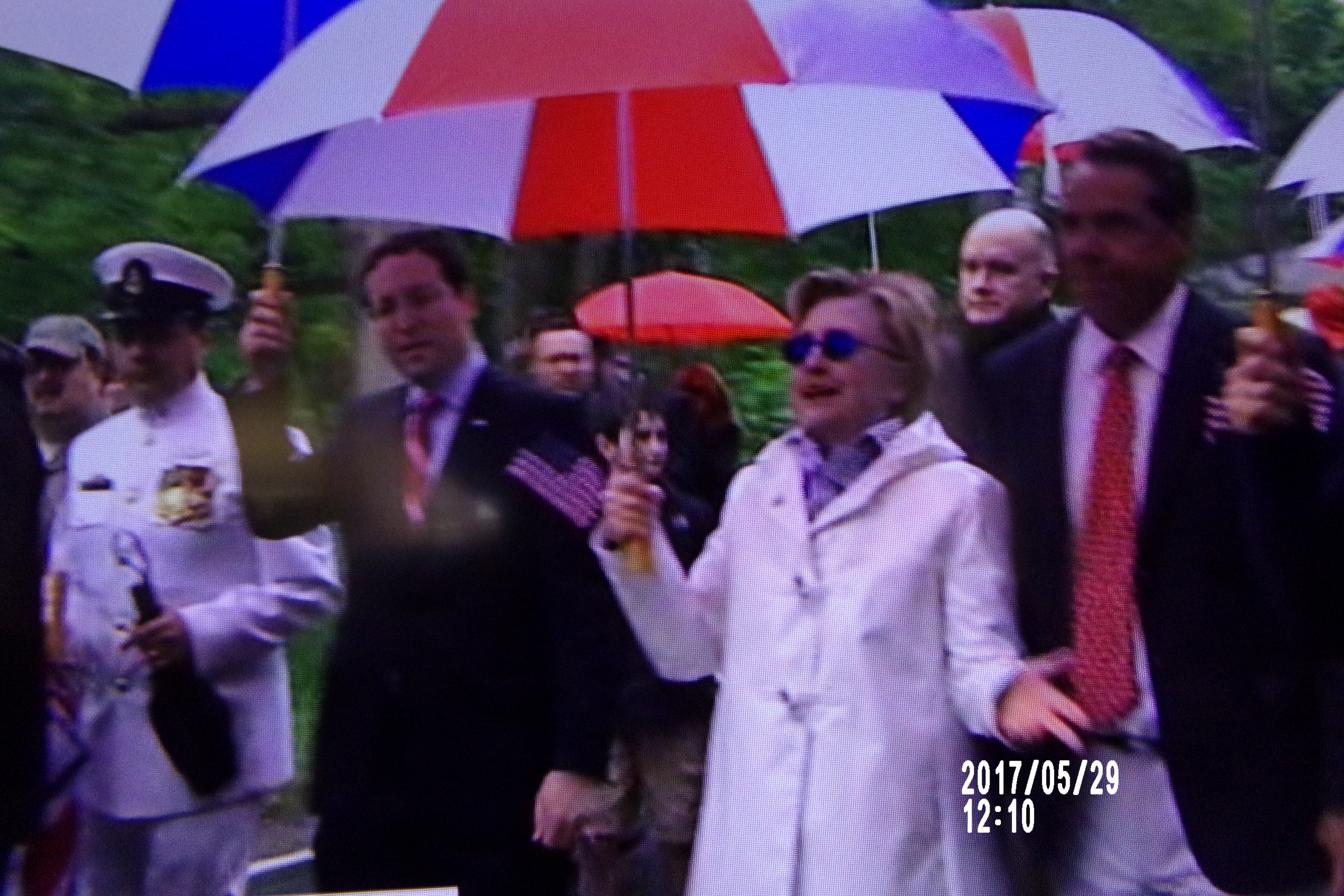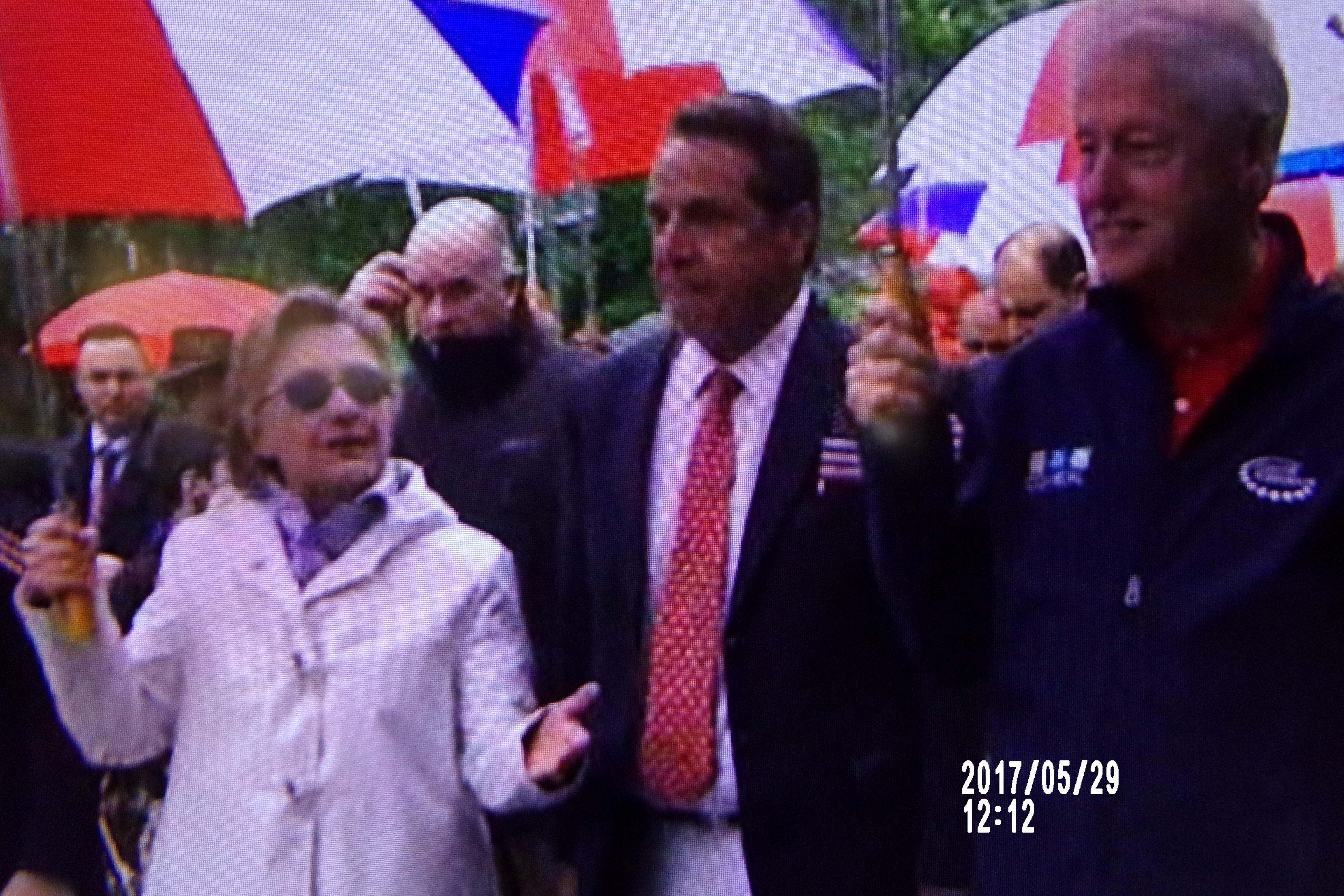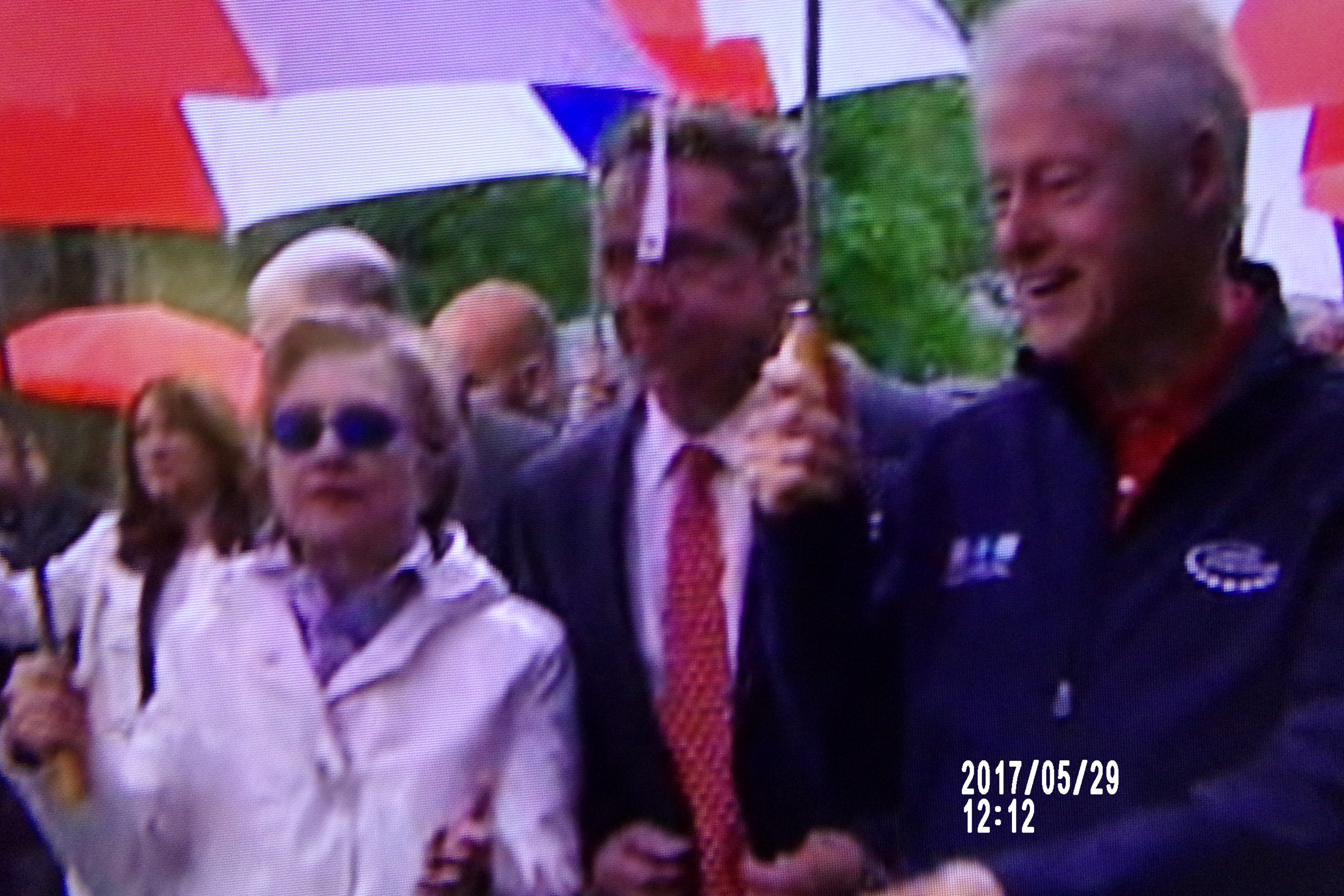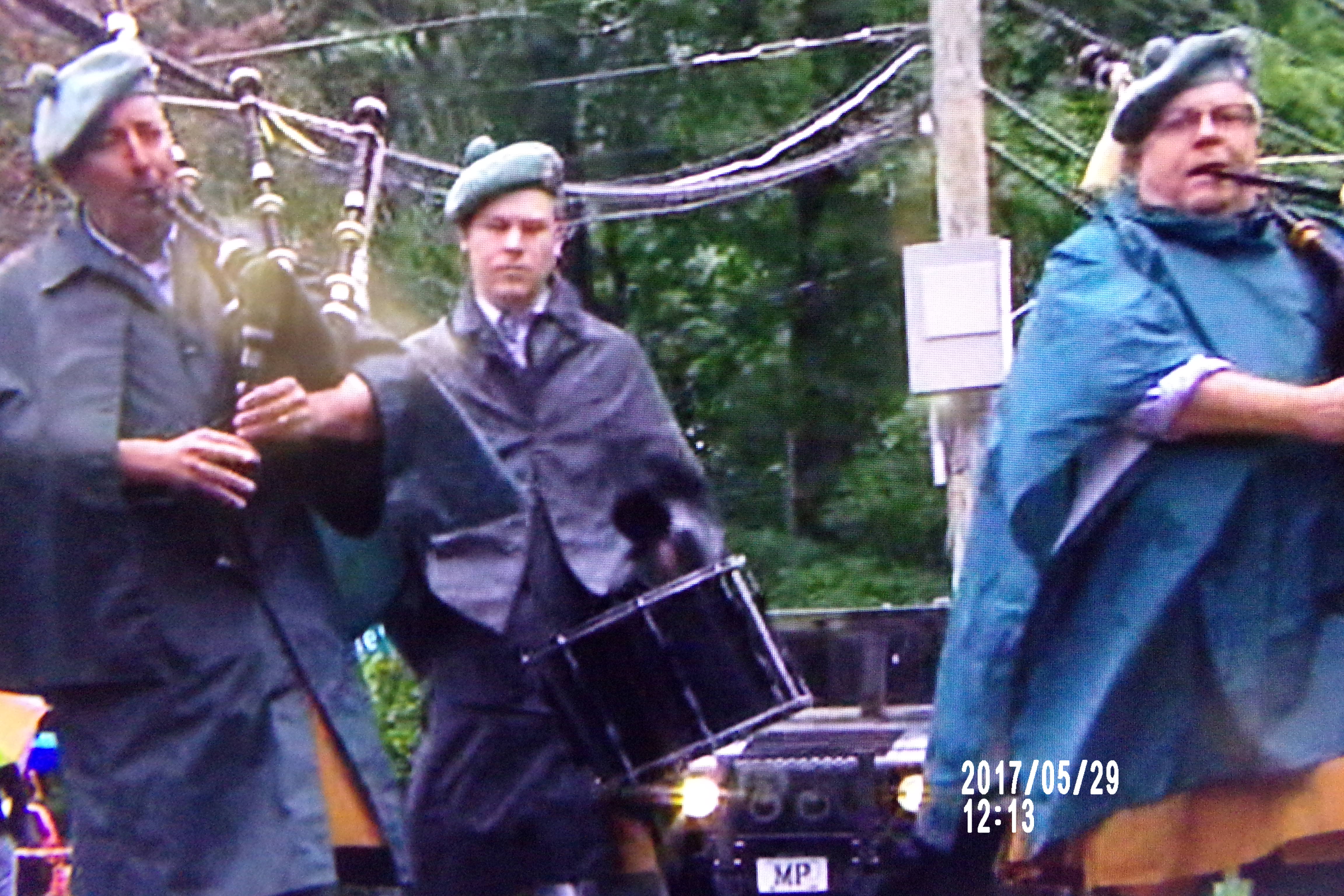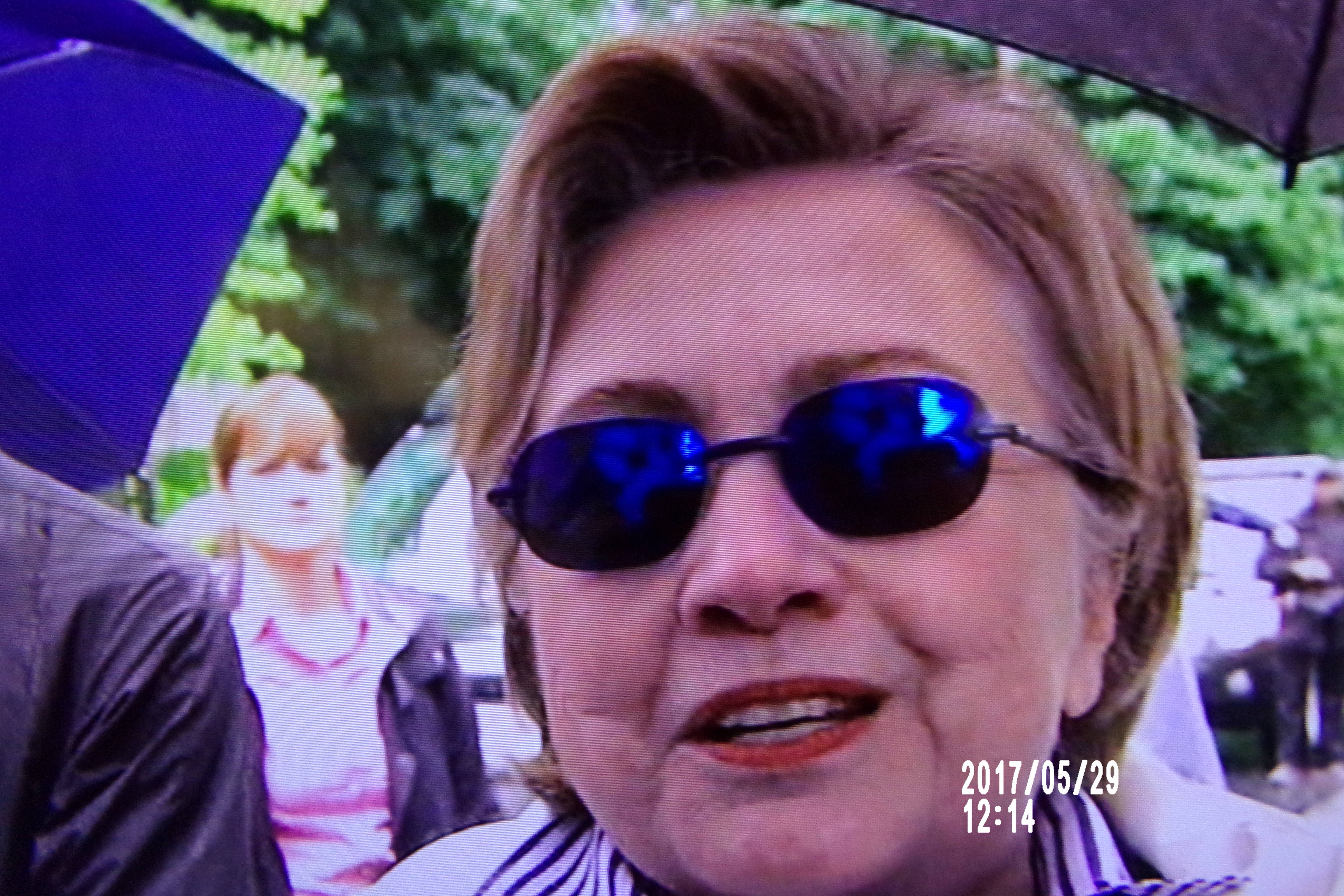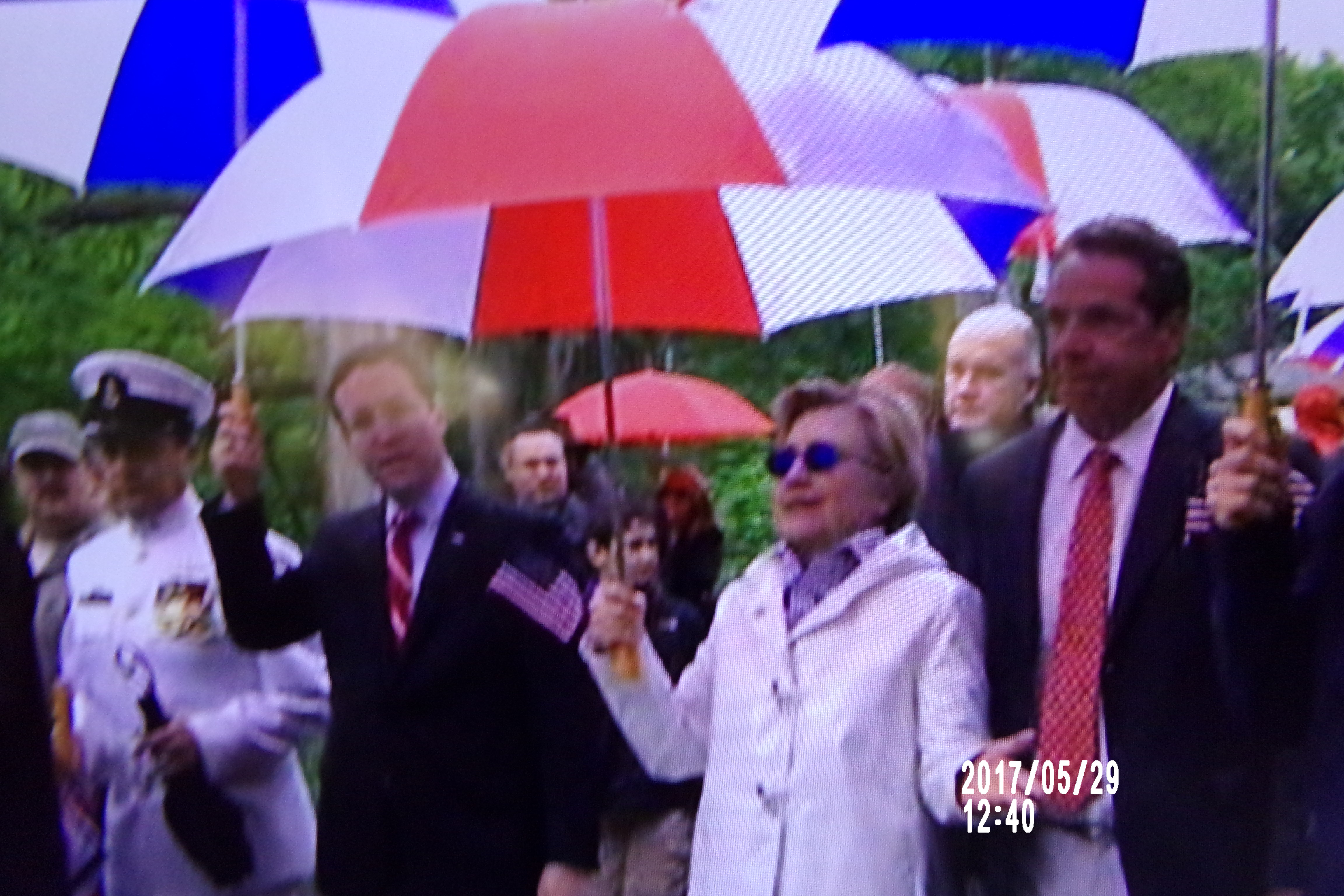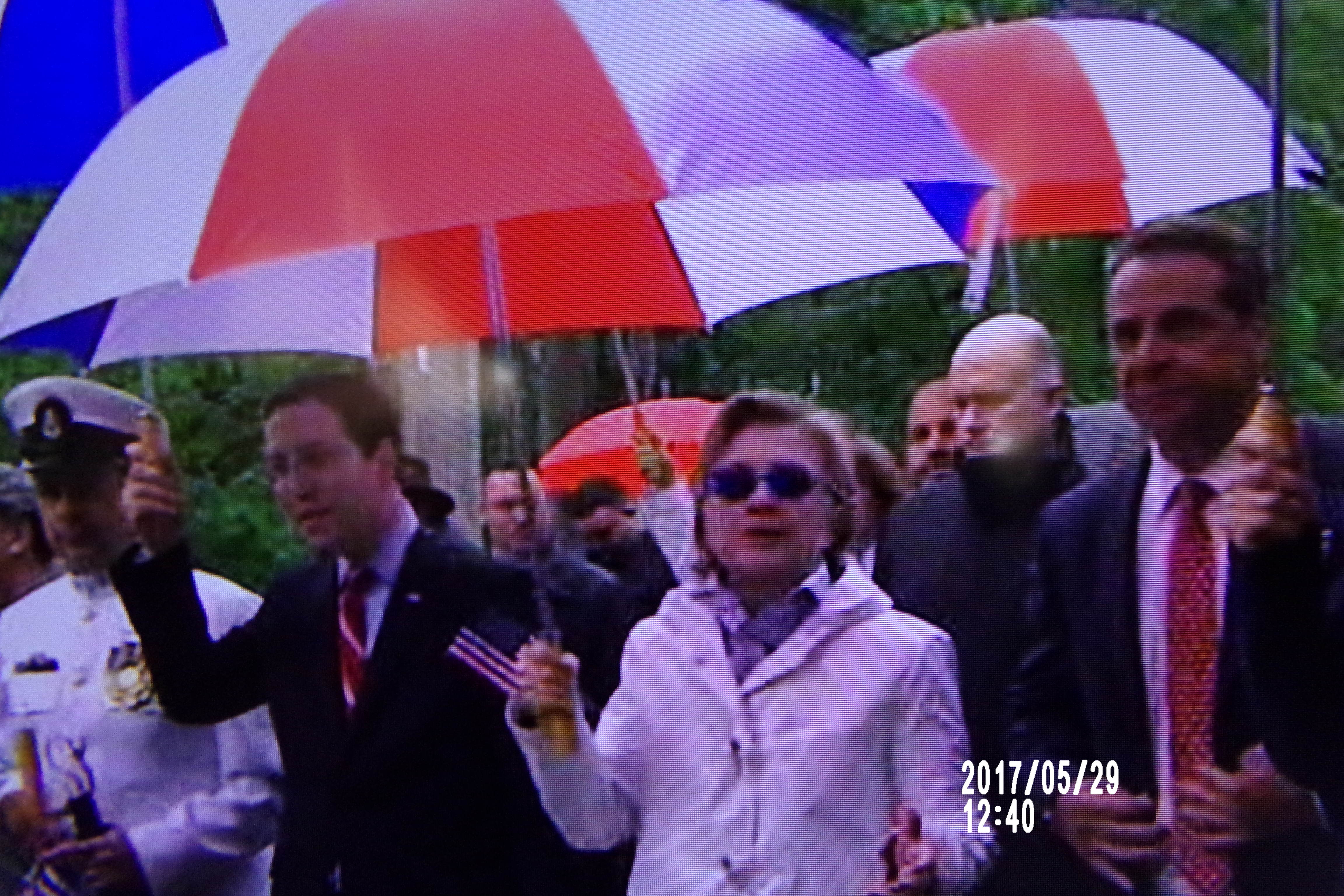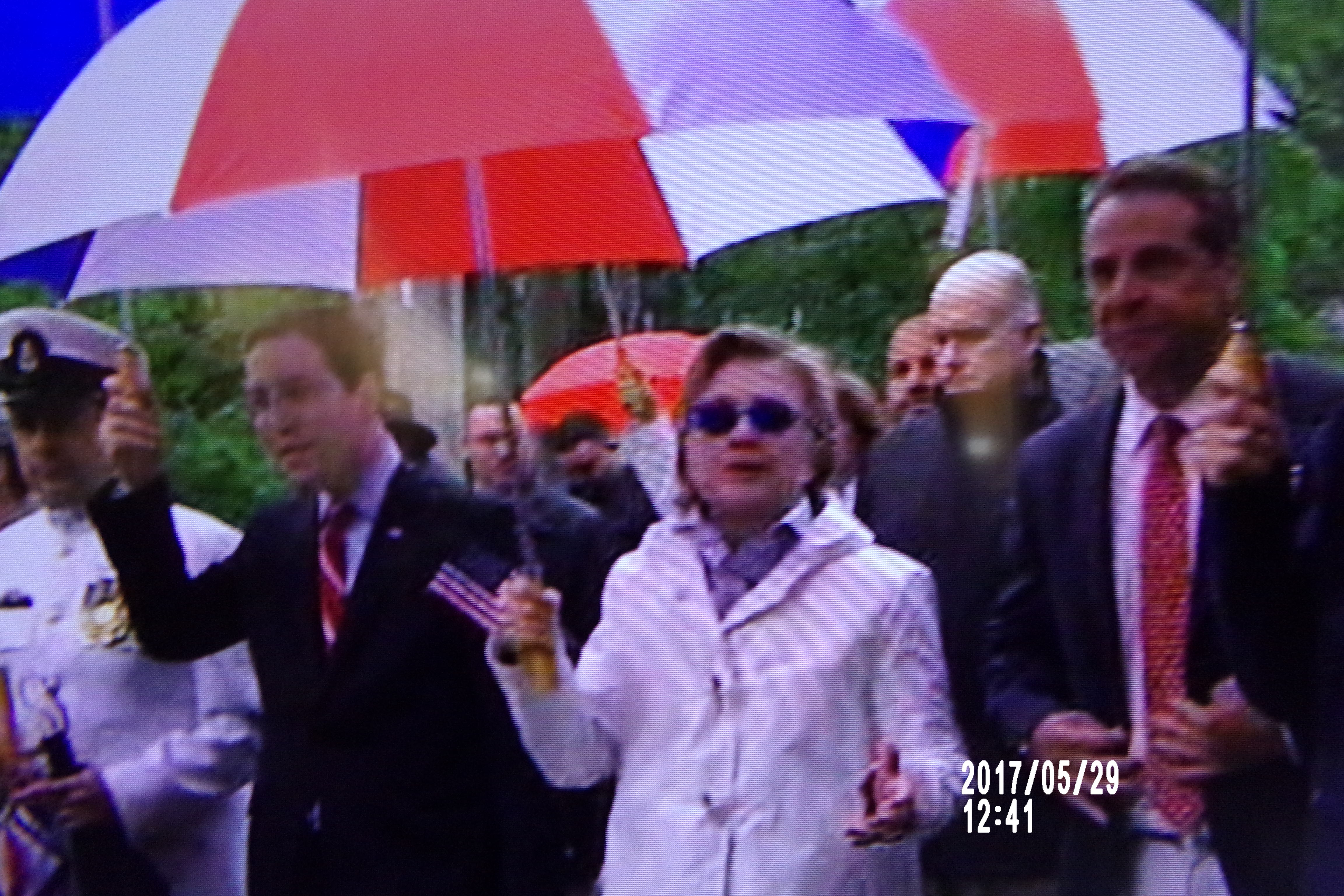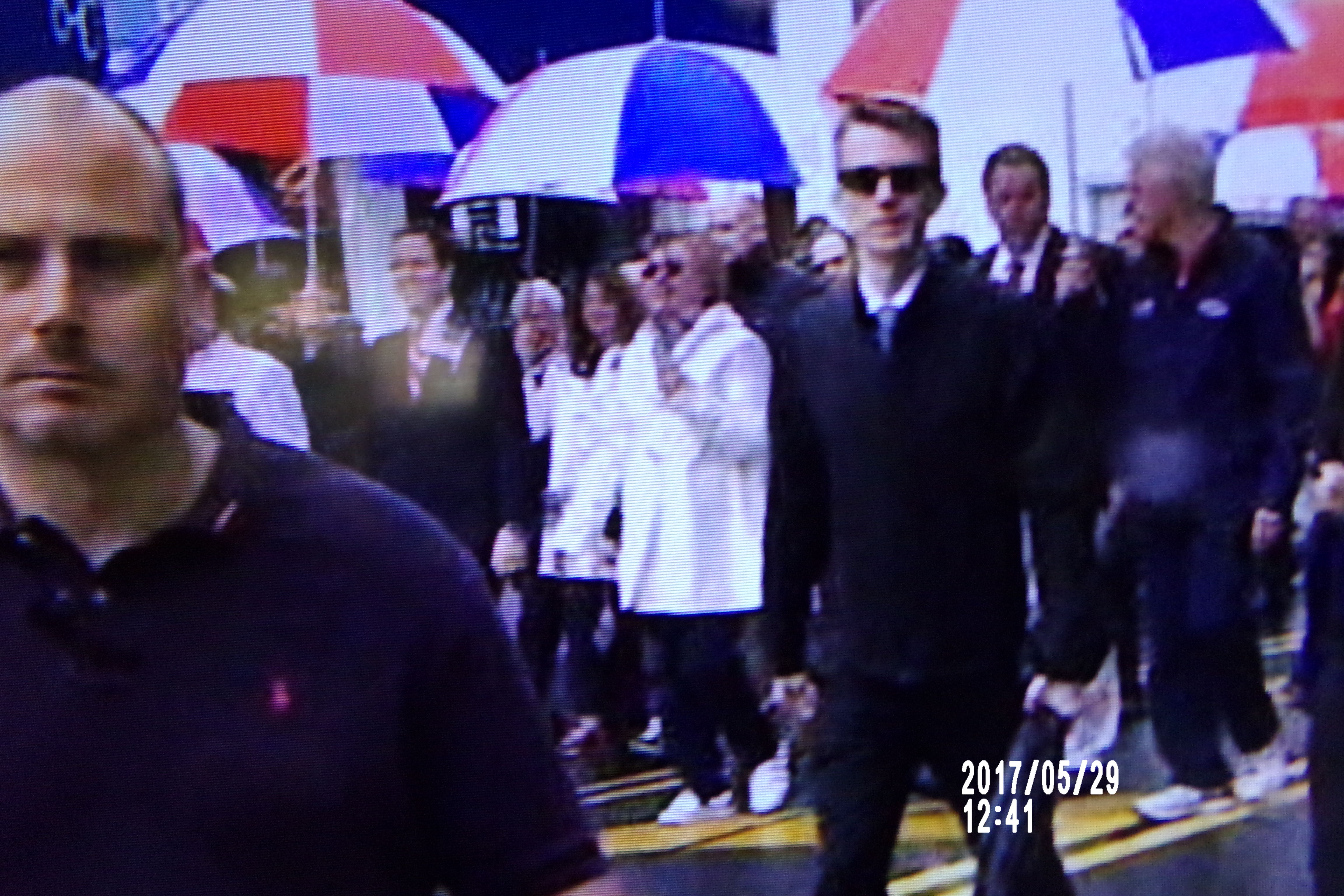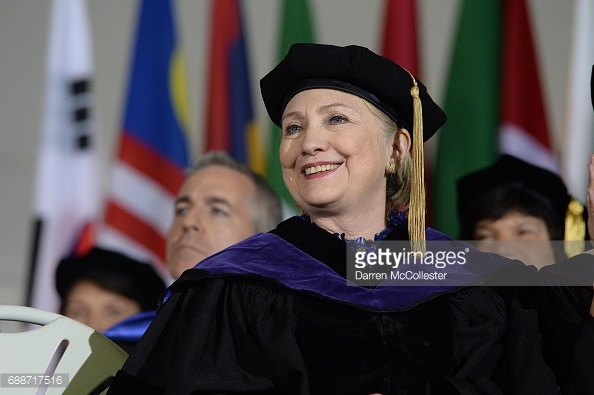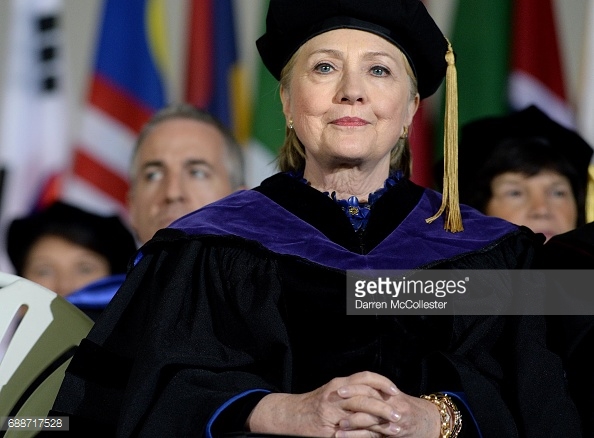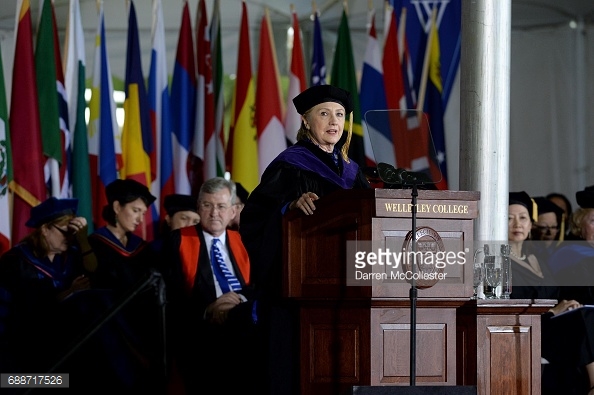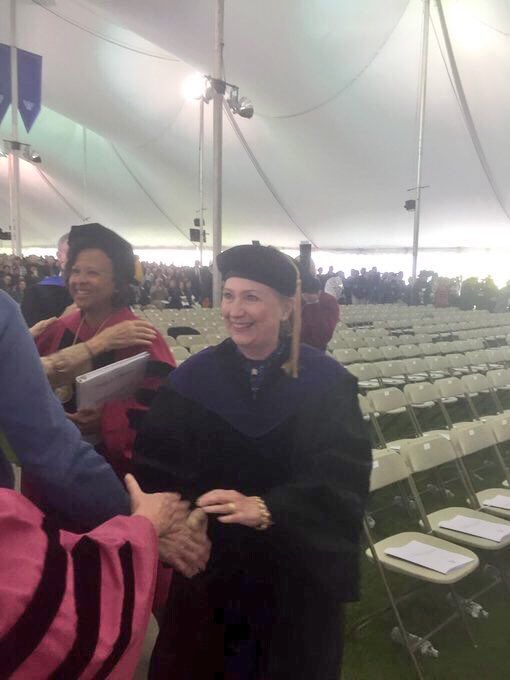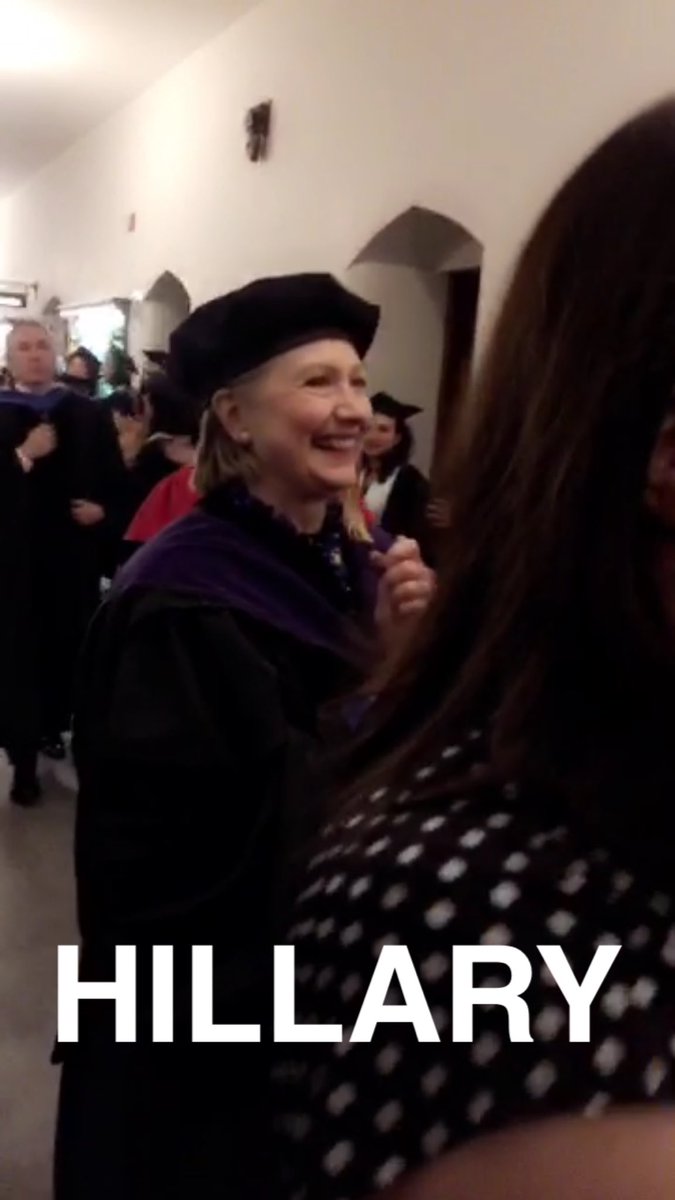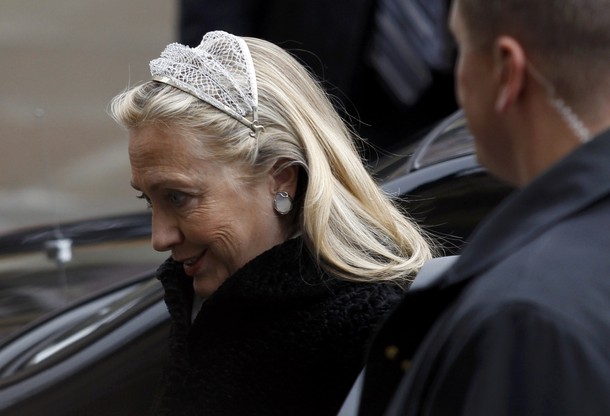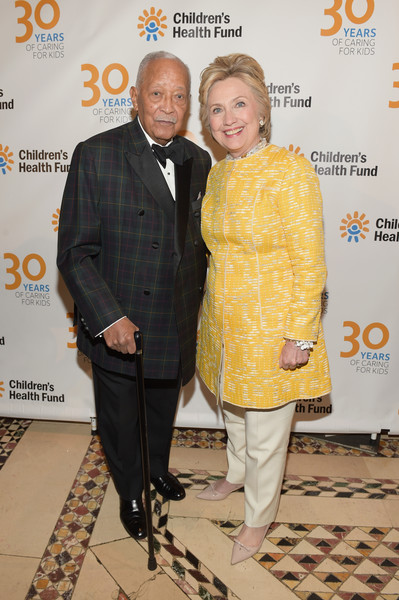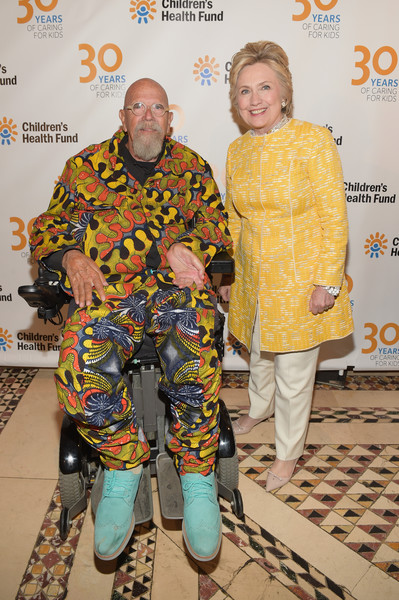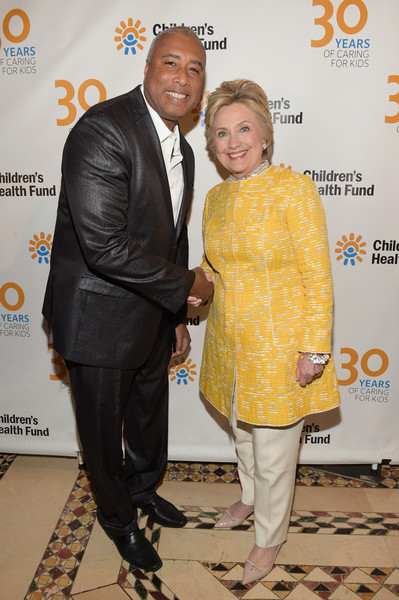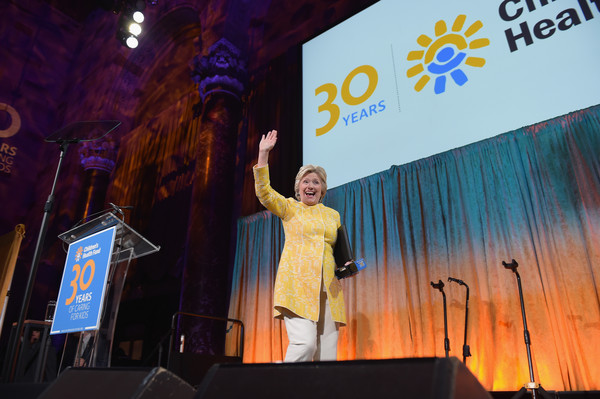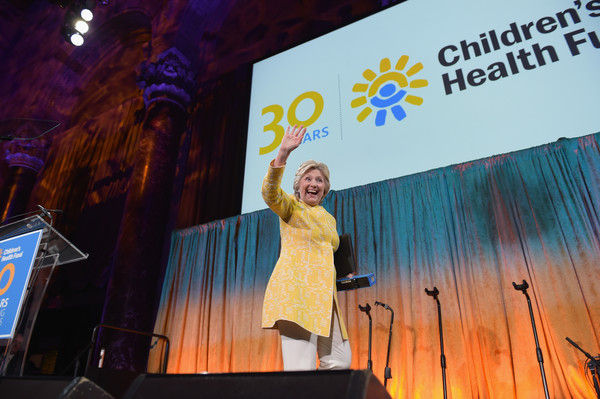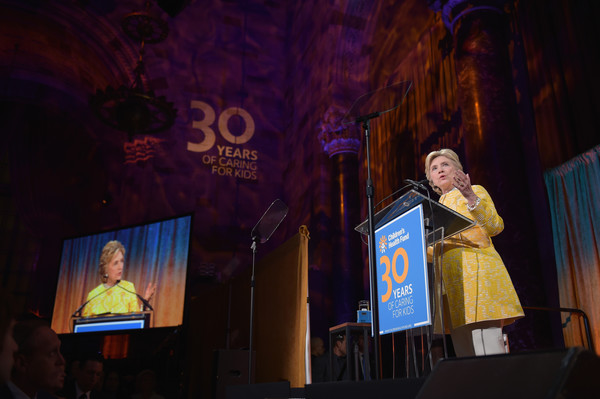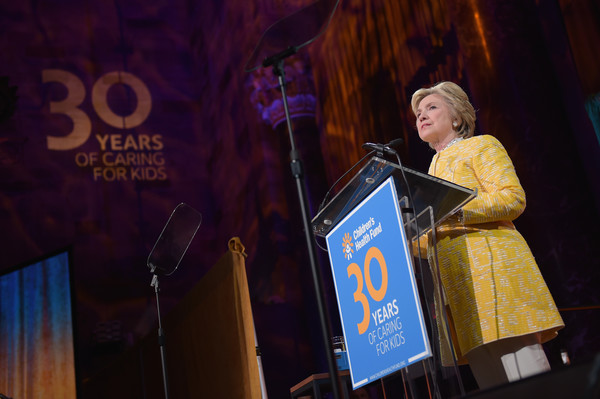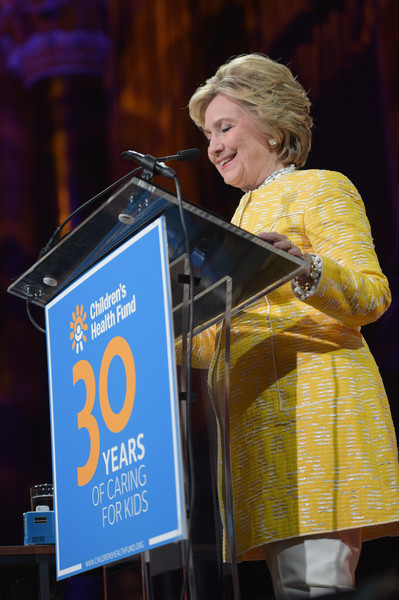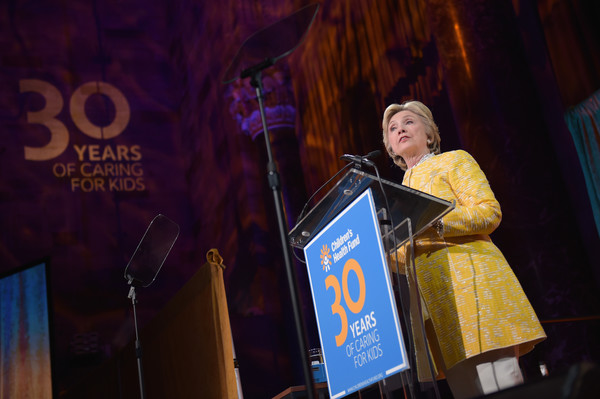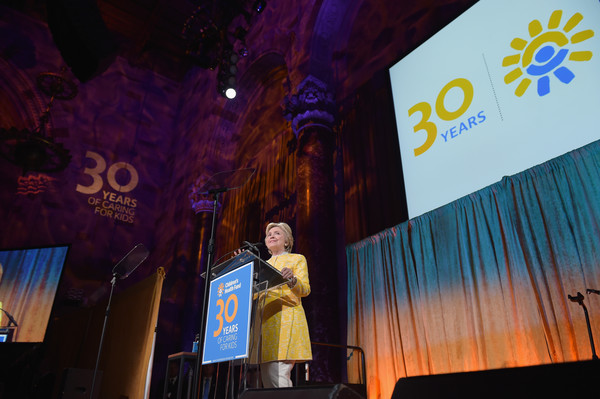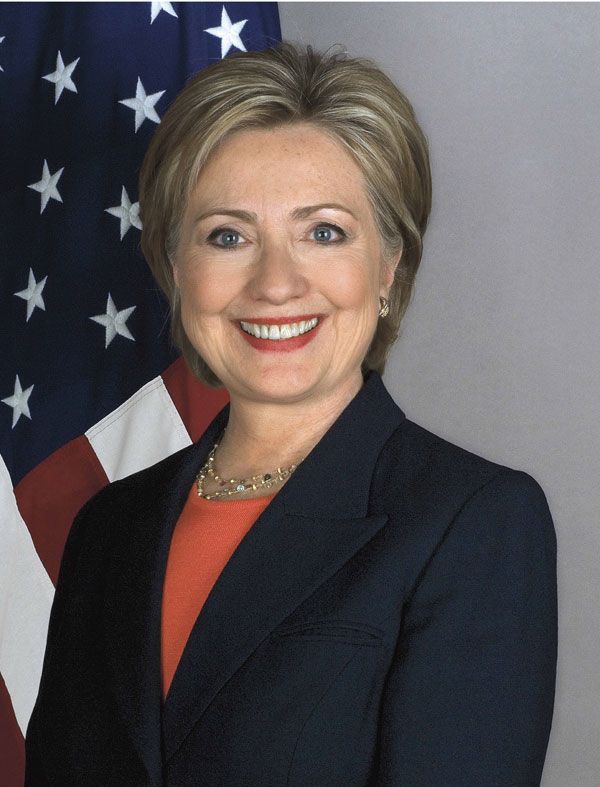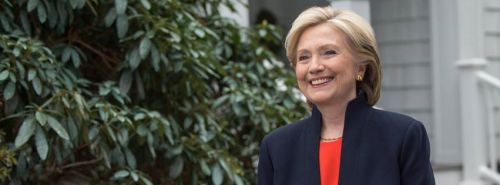Thank
you so much for that warm welcome. I am happy to be back here at
Wellesley, especially for President Johnson's first commencement and to
thank her, the trustees, families and friends, faculty, staff, and
guests for understanding and perpetuating the importance of this
college. What it stands for, what it has meant and what it will do in
the years ahead. And most importantly, it's wonderful to be here with
another green class to say congratulations to the class of 2017.
Now,
I have some of my dear friends here from my class. A green class of
1969. And I assume or at least you can tell me later unlike us, you
actually have a class cheer. 1969 Wellesley. Yet another year with no
class cheer. But it is such an honor to join with the college and all
who have come to celebrate this day with you and to recognize the
amazing futures that await you. You know, four years ago maybe a little
more or less for some of you.
Just a minute.
I've got to get a lozenge. Thank you. I told the trustees I was sitting
with after hearing Paula's speech I didn't think I could get through it.
So we'll blame allergy instead of emotion.
But
you know, you arrived at this campus, you arrived from all over. You
joined students from 49 states and 58 countries. Now, maybe you felt
like you belonged right away. I doubt it. But maybe some of you did and
you've never wavered. But maybe you changed your major three times and
your hair style twice as many as that. Or maybe after your first month
of classes you made a frantic collect call—ask your parents what that
was—back to Illinois to tell your mother and father you weren't smart
enough to be here.
My father said okay, come
home. My mother said you have to stick it out. That's what happened to
me. But whatever your path, you dream big. You probably in true
Wellesley fashion planned your academic and extracurricular schedule
right down to the minute. So this day that you're been waiting for and
maybe dreading a little is finally here. As President Johnson said, I
spoke at my commencement 48 years ago. I came back 25 years ago to speak
at another commencement. I couldn't think of any place I'd rather be
this year than right here.
You may have heard
that things didn't exactly go the way I planned. But you know what? I'm
doing okay. I've gotten to spend time with my family, especially my
amazing grandchildren. I was going to give the entire commencement
speech about them but was talked out of it.
Long
walks in the woods. Organizing my closets, right? I won't lie.
Chardonnay helped a little too. Here's what helped most of all.
Remembering who I am, where I come from, and what I believe. And that is
what Wellesley means to me. This college gave me so much. It launched
me on a life of service and provided friends that I still treasure. So
wherever your life takes you, I hope that Wellesley serves as that kind
of touchstone for you.
Now, if any of you are
nervous about what you'll be walking into when you leave the campus, I
know that feeling. I do remember my commencement. I've been asked by my
classmates to speak. I stayed up all night with my friends, the third
floor of Davis. Writing and editing the speech. By the time we gathered
in the academic quad, I was exhausted. My hair was a wreck. The mortar
board made it even worse. But I was pretty oblivious to all of that,
because what my friend his asked me to do was to talk about our worries
and about our ability and responsibility to do something about them. We
didn't trust government, authority figures, or really anyone over 30.
In
large part, thanks to years of heavy casualties and statements about
Vietnam and deep differences over civil rights and poverty here at home.
We were asking urgent questions about whether women, people of color,
religious minorities, immigrants would ever be treated with dignity and
respect. And by the way, we were furious about the past presidential
election of a man whose presidency would eventually end in disgrace with
his impeachment for obstruction of justice. After firing the person
running the investigation into him at the department of justice.
But
here's what I want you to know. We got through that tumultuous time and
once again we began to thrive as our society changed laws and opened
the circle of opportunity and rights wider and wider for more Americans.
We revved up the engines of imagination. We turned back a tide of
intolerance and embraced inclusion. The we who did those things were
more than those in power who wanted to change course. It was millions of
ordinary citizens, especially young people who voted, marched and
organized. Now, of course today has some important differences.
The
advance of technology, the impact of the Internet, our fragmented media
landscape, make it easier than ever to splinter ourselves into echo
chambers. We can shut out contrary voices, avoid ever questioning our
basic assumptions. Extreme views are given powerful microphones. Leaders
willing to exploit fear and skepticism have tools at their disposal
that were unimaginable when I graduated.
And
here’s what that means to you, the class of 2017. You are graduating at a
time when there is a full-fledged assault on truth and reason. Just log
on to social media for ten seconds. It will hit you right in the face.
People denying science, concocting elaborate, hurtful conspiracies
theories about child abuse rings operating out of pizza parlors.
Drumming up rampant fear about undocumented immigrants, Muslims,
minorities, the poor. Turning neighbor against neighbor and sowing
division at a time when we desperately need unity. Some are even denying
things we see with our own eyes. Like the size of crowds.
And
then defending themselves by talking about “alternative facts.” But
this is serious business. Look at the budget that was just proposed in
Washington. It is an attack of unimaginable cruelty on the most
vulnerable among us, the youngest, the oldest, the poorest, and
hardworking people who need a little help to gain or hang on to a decent
middle-class life. It grossly underfunds public education, mental
health, and efforts even to combat the opioid epidemic. And in reversing
our commitment to fight climate change, it puts the future of our
nation and our world at risk.
And to top it off,
it is shrouded in a trillion-dollar mathematical lie. Let's call it
what it is. It's a con. They don't even try to hide it. Why does all
this matter? It matters because if our leaders lie about the problems we
face, we'll never solve them. It matters because it undermines
confidence in government as a whole which in turn breeds more cynicism
and anger. But it also matters because our country, like this college,
was founded on the principles of the enlightenment. In particular, the
belief that people, you and I, possess the capacity for reason and
critical thinking. And that free and open debate is the life blood of a
democracy.
Not only Wellesley, but the entire
American university system, the envy of the world, was founded on those
fundamental ideals. We should not abandon them. We should revere them.
We should aspire to them every single day in everything we do.
And
there's something else. As the history majors among you here today know
all too well, when people in power invent their own facts and attack
those who question them, it can mark the beginning of the end of a free
society.
That is not hyperbole. It is what
authoritarian regimes throughout history have done. They attempt to
control reality. Not just our laws and our rights and our budgets, but
our thoughts and beliefs. Right now some of you might wonder well, why
am I telling you all this? You don't own a cable news network. You don't
control the Facebook algorithm. You aren't a member of congress. Yet.
Because
I believe with all my heart that the future of America, indeed the
future of the world, depends on brave, thoughtful people like you
insisting on truth and integrity right now every day. You didn't create
these circumstances but you have the power to change them.
Vaclav
Havel, the playwright, the first president of the Czech Republic, wrote
an essay called "The Power of the Powerless." And in it he said, the
moment someone breaks through in one place, when one person cries out,
the emperor is naked. When a single person breaks the rules of the game
thus exposing it as a game, everything suddenly appears in another
light.
What he's telling us is if you feel
powerless, don't. Don't let anyone tell you your voice doesn't matter.
In the years to come, there will be trolls galore online and in person.
Eager to tell you that you don't have anything worthwhile to say or
anything meaningful to contribute. They may even call you a nasty woman.
Some may take a slightly more sophisticated approach and say your elite
education means you are out of teach with real people. In other words,
sit down and shut up. Now, in my experience, that's the last thing you
should ever tell a Wellesley graduate.
And
here's the good news. What you've learned these four years is precisely
what you need to face the challenges of this moment. First, you learned
critical thinking. I can still remember the professors who challenged me
to make decisions with good information, rigorous reasoning, real
deliberation. I know we didn't have much of that in this past election,
but we have to get back to it.
After all, in the
words of my predecessor in the Senate, Daniel Patrick Moynihan,
everyone is entitled to his own opinion but not his own facts. And your
education gives you more than knowledge. It gives you the power to keep
learning and apply what you know to improve your life and the lives of
others. Because you are beginning your careers with one of the best
educations in the world, I think you do have a special responsibility to
give others the chance to learn and think for themselves and to learn
from them so that we can have the kind of open fact-based debate
necessary for our democracy to survive and flourish. And along the way,
you may be convinced to change your mind from time to time. You know
what? That's okay. Take it from me, the former president of the
Wellesley College Young Republicans.
Second, you
learn the value of an open mind and an open society. At their best, our
colleges and universities are free marketplaces of ideas. Embracing a
diversity of perspectives and backgrounds. That's our country at our
best, too. An open, inclusive, diverse society is the opposite of an
anecdote to a closed society where there is only one right way to think,
believe, and act.
Here at Wellesley you've
worked hard to turn this ideal into a reality. You've spoken out against
racism and sexism and discrimination of all kinds and you've shared
your own stories and at times that's taken courage. But the only way our
society will ever become a place where everyone truly belongs is if all
of us speak openly and honestly about who we are, what we're going
through. So keep doing that. And let me add that your learning,
listening and serving should include people who don't agree with you
politically. A lot of our fellow Americans have lost faith in the
existing economic, social, political, and cultural conditions of our
country. Many feel left behind, left out, looked down on.
Their
anger and alienation has proved a fertile ground for false promises and
information. It must be addressed or they will continue to sign up to
be foot soldiers in the ongoing conflict between us and them. The
opportunity is here. Millions of people will be hurt by the policies,
including this budget that is being considered. And many of those same
people don't want dreamers deported or health care taken away. Many
don't want to retreat on civil rights, women's rights and LGBT rights.
So if your outreach is rebuffed, keep trying. Do the right thing anyway.
We're going to share this future. Better do so with open hearts and
outstretched hands than closed minds and clenched fists.
Here
at Wellesley you learned the power of service. Because while free and
fierce conversations in classrooms, dorm rooms, dining halls are vital.
They only get us so far. You have to turn those ideas and those values
into action. This college has always understood that. The motto which
you've heard twice already not to be ministered unto but to minister is
as true today as it ever was. You think about it, it's kind of an
old-fashioned rendering of President Kennedy's great statement. Ask not
what your country can do for you. Ask what you can do for your country.
Not
long ago I got a note from a group of Wellesley alums and students who
had supported me in the campaign. They worked their hearts out and like a
lot of people they're wondering what do we do now? Well, I think
there's only one answer. Keep going. Don't be afraid of your ambition,
of your dreams, or even your anger. Those are powerful forces. But
harness them to make a difference in the world. Stand up for truth and
reason. Do it in private, in conversations with your family, your
friends, your workplace, your neighborhoods, and do it in public. In
media posts, on social media, or grab a sign and head to a protest. Make
defending truth and a free society a core value of your life every
single day.
So wherever you wind up next, the
minute you get there, register to vote. And while you're at it,
encourage others to do so. And then vote in every election. Not just the
presidential ones. Bring others to vote. Fight every effort to restrict
the right of law abiding citizens to be able to vote as well.
Get
involved in a cause that matters to you. Pick one. Start somewhere. You
don't have to do everything. But don't sit on the sidelines. And you
know what? Get to know your elected officials. If you disagree with
them, ask questions. Challenge them. Better yet, run for office yourself
someday.
Now, that's not for everybody. I know.
And it's certainly not for the faint of heart, but it's worth it. As
they say in one of my favorite movies, A League of Their Own, it's
supposed to be hard. The hard is what makes it great.
As
Paula said, the day after the election, I did want to speak,
particularly to women and girls everywhere, especially young women.
Because you are valuable. And powerful. And deserving of every chance
and opportunity in the world. Not just your future, but our future
depends on you believing that. We need your smarts, of course. But we
also need your compassion. Your curiosity. Your stubbornness. And
remember, you are even more powerful because you have so many people
supporting you, cheering you on, standing with you through good times
and bad.
You know, our culture often celebrates
people who appear to go it alone. But the truth is that's not how life
works. Anything worth doing takes a village. And you build that village
by investing love and time into your relationships. And in those
moments, for whatever reason, when it might feel bleak, think back to
this place where women have the freedom to take risks, make mistakes,
even fail in front of each other. Channel the strength of your Wellesley
classmates and experiences. I guarantee you it will help you stand up a
little straighter, feel a little braver, knowing that the things you
joked about and even took for granted can be your secret weapons for
your future. One of the things that gave me the most hope and joy after
the election, when I really needed it, was meeting so many young people
who told me that my defeat had not defeated them.
And
I'm going to devote a lot of my future to helping you make your mark in
the world. I created a new organization called onward together to help
recruit and train future leaders, organize for real and lasting change.
The work never ends. When I graduated and made that speech, I did say,
and some of you might have pictures from that day with this on it, the
challenge now is to practice politics as the art of making what appears
to be impossible possible. That was true then. It's truer today.
I
never could have imagined where I would have been 48 years later.
Certainly never that I would have run for the presidency of the United
States or seen progress for women in all walks of life over the course
of my lifetime. And yes, put millions of more cracks in that highest and
hardest glass ceiling. Because just in those years, doors that once
seemed sealed to women are now open. They're ready for you to walk
through or charge through. To advance the struggle for equality,
justice, and freedom. So whatever your dreams today, dream even bigger.
Wherever you have set your sights, raise them even higher. And above
all, keep going. Don't do it because I asked you to. Do it for
yourselves. Do it for truth and reason. Do it because the history of
Wellesley and this country tells us it's often during the darkest times
when you can do the most good.
Double down
on your passions. Be bold. Try. Fail. Try again and lean on each other.
Hold on to your values. Never give up on those dreams. I'm have been
optimistic about the future. Because I think after we've tried a lot of
other things, we get back to the business of America. I believe in you
with all my heart. I want you to believe in yourselves. So go forth. Be
great. But first graduate. Congratulations!

/cdn.vox-cdn.com/uploads/chorus_image/image/55032965/REC_ASA_CODE17_20170531_124413_1504.0.jpg) Asa Mathat
Asa Mathat